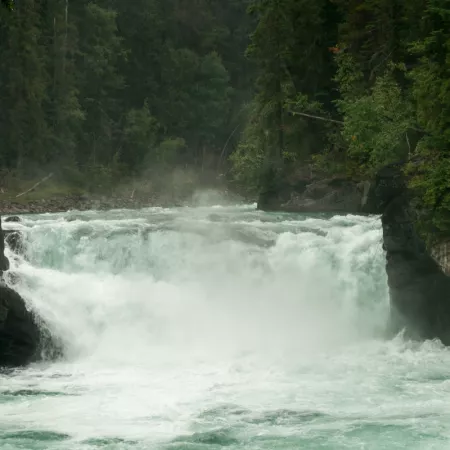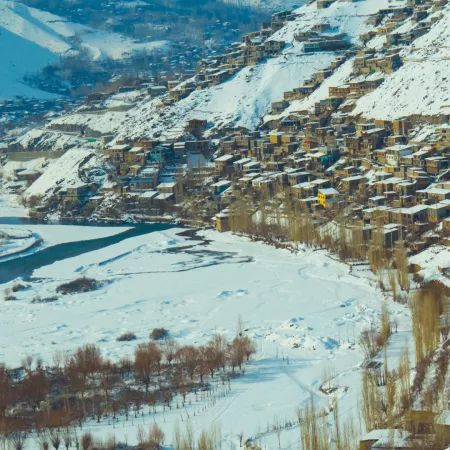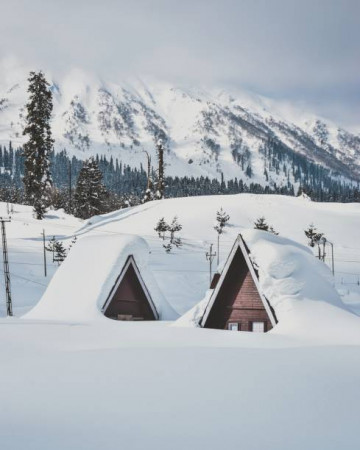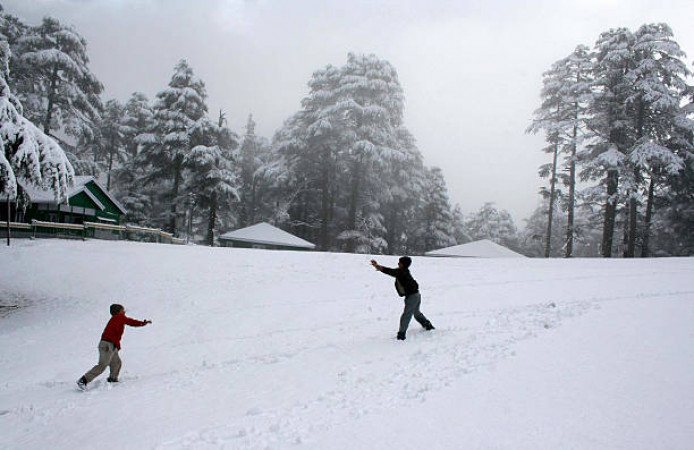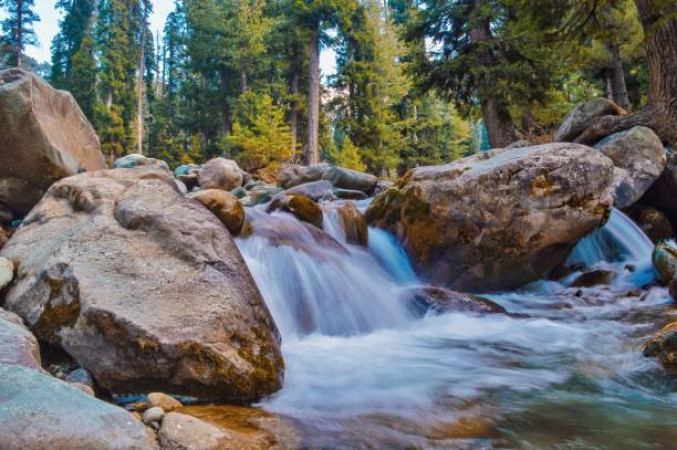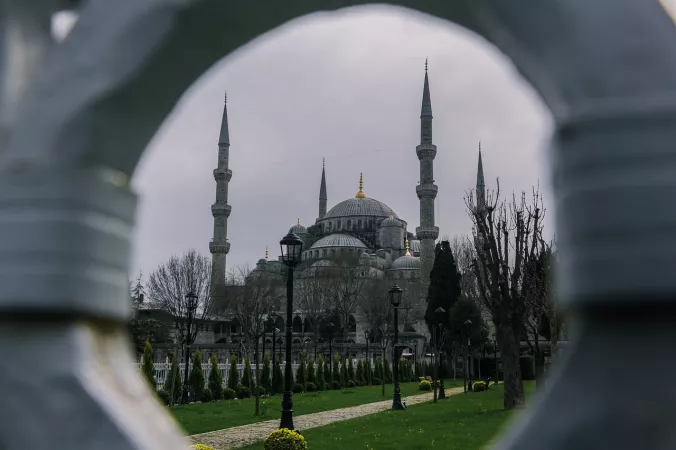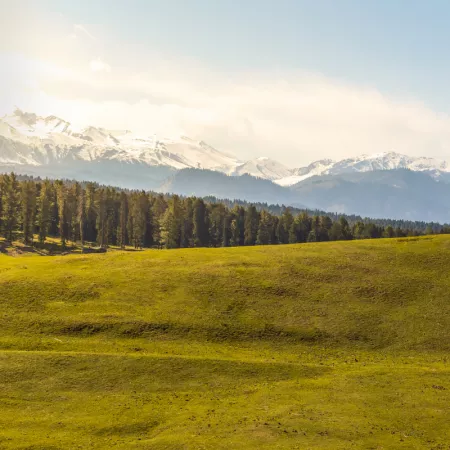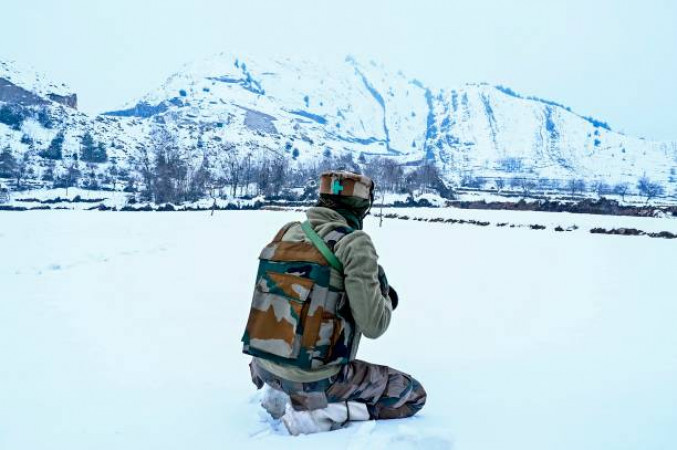
Pulwama
Duration
2 to 4 Days
2 to 4 Days
Best time to visit
Apr-Sep
Apr-Sep
Theme
Hill Station, Adventure, Wildlife
Hill Station, Adventure, Wildlife
Pulwama Travel Guide
Pulwama, located in the picturesque Kashmir Valley in India, is a region renowned for its natural beauty and rich cultural heritage. This region holds historical significance as it has been a part of ancient trade routes and has been a center for traditional crafts. Pulwama is famous for its saffron fields, apple orchards, and serene landscapes that attract travelers seeking a peaceful retreat amidst nature's bounty.Top Attractions in Pulwama
- Visit the vibrant Aharbal Waterfall for a scenic picnic spot
- Explore the stunning Tarsar Lake for a tranquil boating experience
- Discover the historic Avantishwar Temple for a glimpse into the region's religious heritage
Pulwama is Famous for
Saffron fields and apple orchards.Top Attractions in Pulwama
- Witness the breathtaking beauty of the Betaab Valley
- Experience the traditional Kashmiri hospitality at local homestays
- Embark on a trek to the picturesque Aru Valley
What's Great about Travelling to Pulwama?
- Perfect destination for nature lovers
- Great for those seeking a peaceful getaway
- Opportunity to explore the rich cultural heritage
What's Not So Great about Travelling to Pulwama?
- Not ideal for travelers looking for a bustling city experience
- May not be suitable for those seeking vibrant nightlife
- Travel restrictions due to occasional political unrest
Travel Tips for Pulwama
- Check for any travel advisories before planning your trip
- Respect the local customs and traditions
- Carry sufficient warm clothing, especially in winter months
Important Pulwama trip information
- Ideal Duration: 3-4 days
- Best Time to Visit: April to October
- Nearby Airports and Railway Stations: Srinagar Airport and Srinagar Railway Station
Top 9 Places to visit in Pulwama
FAQ's on Pulwama
Q1: What is the best time to visit Pulwama?
The best time to visit Pulwama is during the spring and summer months, from March to June, when the weather is pleasant and the valley is in full bloom. Avoid visiting during the winter months as snowfall can disrupt travel plans.
Q2: Do I need a visa to travel to Pulwama?
Pulwama is located in the Indian-administered region of Jammu and Kashmir. Depending on your nationality, you may need a visa to enter India. Check with the Indian embassy or consulate in your country for specific visa requirements.
Q3: What are the must-visit attractions in Pulwama?
Pulwama is known for its scenic beauty and serene landscapes. Must-visit attractions include the saffron fields, Aripal Nag Temple, Tarsar and Marsar Lakes, and the Shikargarh Wildlife Sanctuary.
Q4: Is Pulwama a safe place to travel?
While Pulwama is generally safe for tourists, it's essential to stay informed about the current situation in the region due to occasional political tensions. Avoid areas with potential unrest and follow local advice for a safe visit.
Q5: What is the local currency in Pulwama and can I use credit cards?
The local currency in Pulwama is the Indian Rupee (INR). ATMs are available in major towns, but it's advisable to carry cash for smaller purchases. Credit cards are accepted in some hotels and restaurants.
Q6: What is the local cuisine like in Pulwama?
Pulwama offers a variety of traditional Kashmiri dishes such as Wazwan, Rogan Josh, and Yakhni. Vegetarian options like Dum Aloo and Nadru Yakhni are also popular. Don't miss trying the local saffron-infused Kahwa tea.
Q7: What transportation options are available in Pulwama?
Transportation options in Pulwama include buses, shared taxis, and rental cars. Public transport can be limited, so consider hiring a private vehicle or driver for more flexibility in exploring the region.
Q8: Are there any cultural norms or etiquette I should be aware of when visiting Pulwama?
Respect local customs and traditions in Pulwama by dressing modestly, especially when visiting religious sites. Remove shoes before entering homes or places of worship, and greet locals with a polite "Salaam" or "Namaste." Avoid discussing sensitive political topics to maintain a harmonious visit.
Q9: I am a travel agent. How can I buy travel leads of Pulwama?
Register yourself as a travel agent at agents.tripclap.com and then you can buy travel leads to Pulwama once your account is approved. For more details contact our support team at +91-8069186564 or support@tripclap.com
